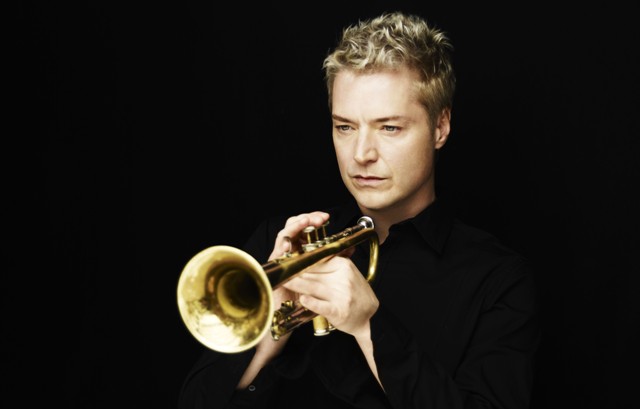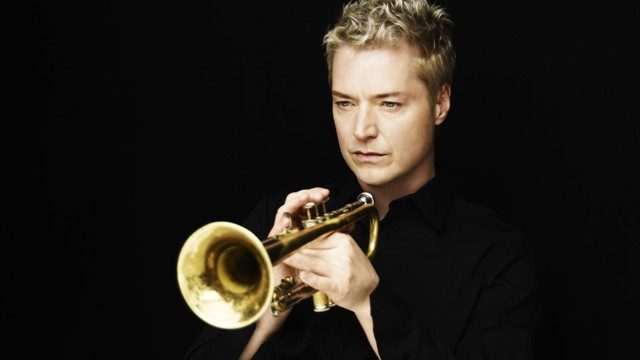By Jeff Maisey
If jazz trumpeter Chris Botti and his band seem to be on the road a lot, with seemingly annual stops in Hampton Roads, he is.
With the recorded music industry in disarray because of streaming services such as Pandora, popular acts like Botti have found survival of the fittest to be a life on the road.
Between his 1995 debut and 2012’s Grammy-winning Impressions, Botti released a studio album almost every year. That frequency ceased for Botti as it has for many recording artists.
The culprit is the availability of music free of charge through streaming. Streaming music free of charge can often be problematic for artists, they usually find that CD sales are in decline so money has to be made from touring and merchandise. Some music streaming sites do ask users for a monthly subscription though, where a percentage of this will go to the artist. But with the introduction of websites like proxybay, some users can download their favorite music for free.
To learn more about how this sensational jazz artist continues to flourish in such a shaky climate, I spoke with Botti by phone. Here’s what he had to say.
You are a frequent performer in the Hampton Roads region. How do you evaluate this area as a listening audience?
We’ve been on the road now for about a 12-year non-stop world tour. I’m on the road about 250 days a year.
I must say the audiences there are super enthusiastic. I think we’ve played the Sandler Center a few times. We so enjoy going there and feel really lucky to be able to tour as much as we do.
You enjoy interacting with the audience. What role does the audience play in inspiring you during a concert?
I think with any musician or performer of any kind if the audience is active or engaged it makes for such a fun night. I do that thing in the audience; either going into the audience or actually speaking to the audience because it takes a little more effort for someone to understand what they think a jazz show is. Certainly my show is not just a traditional jazz concert by any stretch of the imagination, but I think that to not only act as the performer but someone that navigates the audience along with the people on stage and ushers them around the music is a role that I’ve adapted and really enjoy.
Let’s continue that point where you say your show is not a traditional jazz concert. There was a period of time in the 1940s, ‘50s and ‘60s which saw the classic traditional jazz artists. In the 1970s we had jazz/pop crossover artists such as Chuck Mangioni. I’m wondering how your brand of jazz has evolved over the years?
Certainly being involved with artists like Sting or Steven Tyler has given me a real sense for pop music, but my band is filled with absolute, stone cold, gun-slinging jazz stars. What we’ve done is to try to bring real artistry on the individual instruments to a really big place and frame it in the same way a pop star would but make it musically on a super high level so musicians can appreciate it.
Over the past 30 years, sometimes – and I’m not going to get into naming names – artists that play instrumental music that become rather successful the music is dumbed-down. In other words, it’s just the simplest R&B harmony you’ve ever heard with some instrument kind of loping along on the top.
My show is totally not that. It’s based on something completely different, and I’m very proud of that.
Do you find a lot of jazz musicians attend your show? And what might they learn from seeing you live?
Well a lot of jazz musicians come to our show when we play the Blue Note in New York because we do 56 shows in 28 straight nights. They have the night off and they come down.
For the most part if we play certain cities a lot of my friends in the business are working. If we play LA or New York, of course, they’ll come to the show. It’s a different audience. It’s a lot of couples coming out. My audience is 8 to 18 and 35 to 95. Somehow God wants you to listen to rock ‘n’ roll when you’re 20 to 35, then they come back to other styles of music like classical and jazz.
That’s a great point, and I think that’s true for the arts in general. You’ve done some crossover collaborations with the likes of cellist Yo-Yo Ma. How is it different collaborating with someone like that compared to working with Sting or Steven Tyler?
Well, fantastic. I love it. Joshua Bell and I are heading out on tour this summer as well. I’ve worked with fantastic classical musicians. When your basic premise is having tone and control over a monophonic instrument – that is the definition of classical music. For a great cellist or opera singer or violinist your whole life’s work is how well you control that instrument. That’s where I’ve made my livelihood. So someone like Yo-Yo Ma and I get along fantastically in that way.
Your 2012 Grammy-winning album Impressions was largely a collaborative effort. Is that a rewarding experience for you to collaborate with such a wide variety of people?
Absolutely. Yeah. We did four different singers on that record. I should say five different artists: David Foster and Herbie Hancock are obviously two pianists. Then Mark Knopfler, Vince Gill and Andrea Bocelli.
If you look at an album like Kind of Blue, which is Miles Davis’ landmark album, you only heard the trumpet on that album about 20-percent of the time. Remember there was Bill Evans playing piano; there was Cannonball Adderley; there was John Coltrane. They had all these other soloists.
What I did, rather than just have a saxophone solo or two saxophone solos, which Miles Davis had on his record, I replaced that framework for the audience so they hear a voice and that breaks up the sound of the trumpet. For me that is the collaboration that Miles had with all those other artists. Because you don’t just want to hear the trumpet all the way through because it just gets monotonous, you know, so you want to have the listener go on a ride but give them a breath from the trumpet.
And that is very much a classical music perspective as well, correct?
I think so. It’s also shows my affection for sophisticated pop music. I’m not talking about a lot of brain-dead pop music I hear today. Someone like Mark Knopfler is a very highbrow respected musician as is Vince Gill and Andrea Bocelli in the singing world.
It’s been four years since you released Impressions. Is there a new album in the works? And do you find it difficult to work on an album when you’re on the road as much as you are?
I think next year we’re going to do something, whether it’ll be a live concert we make into a record or a studio record, but I’ve gotta tell ya the way that the music industry has just fallen off a cliff and no longer is relevant in so many ways it is important for me to kind of stand back, rely on my touring and wait and see if there is some sort of footing that the music industry will take that will be encouraging, because right now it’s pretty brutal. I’m in a little bit of a pause mode because I went through ten years of making an album every year, then all of a sudden in 2012 when all this stuff started to snowball against it, it’s make me sit back and wait.
What is your opinion of music streaming services like Pandora?
Well, if someone said to you you were going to open a restaurant, give away your food, pay the rent and everything else, how does that work for you?
I am an artist that has an audience and I can go play a live concert. That is a currency that is never going to go away because people come and they gather and they see us play.
The people that really get hurt in this situation are songwriters. When you look back at the history of great songwriters like Sammy Cahn and Irving Berlin these were brilliant, smart people. For their day, for their time there was an incredible amount of monetary success to be made for smart, brilliant people to write songs.
Now people that write number one hits…there’s that famous article about the guy that wrote “All Bass, No Treble,” ten years ago he would never have to work again. He wrote one of the best songs of the year. He made $3,000. That didn’t even pay his month’s rent. It’s unspeakable how bad it has become.
You’re talking about an industry, because of the streaming, that has shrunk 90 percent. It’s really, really rough. I hope that somehow the film industry doesn’t fall into this same sort of trap because then it’ll be like the king and his court. You’ll be making music for free for only the people who can afford to make an album. I can afford to make an album, but if you’re a young artist coming up right now I don’t know how they break through. There’s always going to be one or two Taylor Swifts. It’s a whole different scenario.
Do you find you sell a high number of CDs at a concert on any given night while you have a captive audience right there?
Yeah. We sell a lot. I think for the most part people come up and get you to sign it. It becomes an autograph signing session.
To be honest with you I don’t know who owns a CD player anymore. There’s no place to even put it in the computer.
WANT TO GO?
Chris Botti
June 23
Sandler Center





